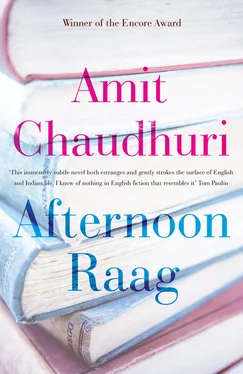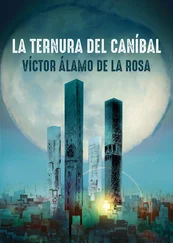Strange place, Oxford, and strange discoveries one makes within it! Strange students’ rooms, with their own, always slightly unfamiliar, dimensions. During that time when I was undecided between Shehnaz and Mandira, hurting them both, being hurt by both, confused as I had never been, I lived on the ground floor of the graduate building, and Sharma lived in the room just above mine; we had a floor and a ceiling in common. From the beginning, Shehnaz and I tried in various ways, in kind and unkind, in rational and irrational ways, to shake off each other; but Oxford is such a lonely place, such a small place, so few its streets and its landmarks, that those who have felt some affection for each other come together again and again. When I went missing (and sometimes I was with Mandira), Shehnaz would wait for me to return in Sharma’s room. Coming back, I would hear that Shehnaz had been looking for me; going to her college, I would not find her there. For long periods of our relationship, if one were to add all these moments, we kept ourselves absent or hidden from each other. On one occasion, I remember, I had been out for several hours; she had come twice to my room and gone away. When she came for the third time, I was in Sharma’s room, and we saw her from his window, coming down the road. As she rang the doorbell, entered, and then climbed up the stairs, Sharma said, ‘Quick, hide in the cupboard!’; it was something he himself loved doing, a bad but endearing habit, surprising me by stepping into my closet when I was not there, and then coming out and taking me unawares. Guided by him, without a will of my own, I was led inside, to stand there among Sharma’s shirts and trousers as he opened his door and asked Shehnaz in. Silent, hidden, I watched through the crack between two doors, which gave me a surprisingly wide vision as Shehnaz, dressed in churidars and kurta, sat on the armchair and asked in a puzzled way, ‘What, is he out again?’ and Sharma replied nonchalantly, ‘No, no, he is here, he is somewhere here.’ And yet, I did not, like Sharma, have the courage to emerge.
Sohanlal was born in a kingdom in Rajasthan and as a boy, he became a court dancer. There were times when he had to perform before the king, when his guru would take him and another boy to dance as Radha and Krishna at the court. When the dance was over, the audience would bow before the two children as if they were Radha and Krishna. That world, of gestures and wonder, existing in the wide, silent margins of the land, is gone now. All has been named and brought to consciousness, the colours, the words and their meanings, but Sohanlal is one of those few people who remember the darkness of what was there before, the old language and its life.
When we were alone, Sohanlal would show me the lanes of Brindaban, sitting on the floor with one leg crossed and the other knee raised, his bare feet visible but the rest of his legs covered by the white cotton cloth of his pyjamas, the upper part of his body in a silk kurta which descended and rested calmly upon his lap like a great handkerchief. His arm would be lifted at an angle that inclined towards his head. Brindaban appeared as he moved while singing the words in Avadhi that had been composed by Bindadeen Maharaj. Avadhi, an older version of Hindi, still spoken in the villages, is such a poetic language that its most common expressions can bring places and spirits before the eye, can stir love in the heart. Its discontinuous grammar and incomplete sentences are a product of the consciousness that existed before there was any difference between the past and present. When Sohanlal became Radha, his face would be turned away a little, in shyness and also in hurt at Krishna’s transgressions, one eyebrow raised but the eyes averted. But when he was Krishna, he was the child Krishna, his lips smeared with curds and butter, or dancing upon the serpent’s head, or swaying very lightly to his own music. Often, women would seek out his mother to complain of his mischief, and many times, when he stopped their path as they walked towards the River Yamuna, they had no choice but to threaten him and plead with Yasodha. All his excuses and alibis were known to her, but by the time he returned it had become evening and her heart was filled with love. The lies he said to her at that moment she pretended to believe.
When I hear the raag Maand, I think of my guru and his brother and Sohanlal, for it bears the characteristics, the stamp, and the life of their region. Their faces, their language, the colour of their skin, the cotton clothes they wear, are set and have their meaning against the same landscape. Each raag was once a folk-melody, a regional air sung, with tiny variations, to different words, by members of a community of families before its notes were ordered and systematized into the melodic progression called a raag. But when a Rajasthani sings Maand, or a Punjabi sings Sindhi Bhairavi, he returns to his homeland, which for him is a certain landscape influenced by seasons, a certain style of dressing and speaking, a web of interrelationships and festive occasions. Each region has its own grace-notes, its peculiar turns in singing, and there were some grace-notes I had to learn and relearn arduously which Sohanlal told me came naturally and without practice to the people of his land, from temple singers to young peasant boys. Maand was a raag which, when sung by my guru or Sohanlal, revealed its airy, skeletal frame, with holes and gaps in it, its unnameable, magical beginnings, and its spirit-like mobility in covering distances, in traversing scorched mountainsides, deserts, horizons, water, following back on the route of migrations that had led away from that country. The raags, woven together, are a history, a map, a calendar, of Northern India, they are territorial and temporal, they live and die with men, even though they seem to be timeless and exist outside them; they are evidence of the palimpsest-like texture of Northern India, with its many dyes and hues, its absence of written texts and its peculiar memory, so that no record of people like Sohanlal, or my guru and guru’s father, exists unequivocally, or without rhythm and music.
Each raag has its time of day, a cluster of hours called ‘prahar’, or its season. Goud Sarang and Shudh Sarang are sung at midday, while Madhuvanti is sung in late afternoon verging on twilight, Purvi and Shree from dusk to early evening, and in late evening, Abhogi Kanhra. Midday brings the smell of ripening jackfruit, the buzz and gleam of bluebottle flies, the fragrance of mango blossoms which, Tagore said, opens the doorways to heaven. The notes sa re ma re ma pa of Shudh Sarang, with the sharp and yearning ascent of the second ma, its resolution in pancham, define the bright inactivity of midday, its ablutions and rest, the peace of a household. Twilight cools the veranda; midday’s boundary of protective shade separating household from street, inside from outside, is dissolved; the sad, flat rishab in conjunction with the sharp madhyam and pancham, the notes of Shree related to each other by dancing swoops and curves, calm the mind during the withdrawal of light. No raag is so pure that it does not remind one of another raag, that it is not, in some elementary way, a variation or version of a raag sung at some other time of day, or some other season. For instance, does not the heat and blaze of Shudh Sarang resemble, in its structure and shape, the watery gravity and plumbings of Megh? The seasons and hours have no absolute existence, but are defined by each other.
In the last and hottest days of summer, Bombay waited for the rains to arrive. The earth hardened into brown Deccan bedrock, the black rocks by the Arabian Sea were warm if one touched them, people pulled curtains across the windows in the afternoon; it was a time of stupefying heat when reeds and grass grew long and leaned against walls, mango and jackfruit ripened, and flame-red gulmohurs lit the trees. The first drops of rain were a spray that moistened the cloth of one’s shirt. This was the time when letters and newspapers arrived partially wet, the wet paper became soft, the parts of the newspaper it had rained upon darkened by a blue-grey shadow. For those who lived in houses like ours and owned a car, it was a season that brought relief; for the maidservants, sweepers, and part-time servants, who too, in a sense, ‘lived’ in Bombay, it was a time of trials and miracles, when one side of their roof collapsed and another side of their house blew away.
Читать дальше












